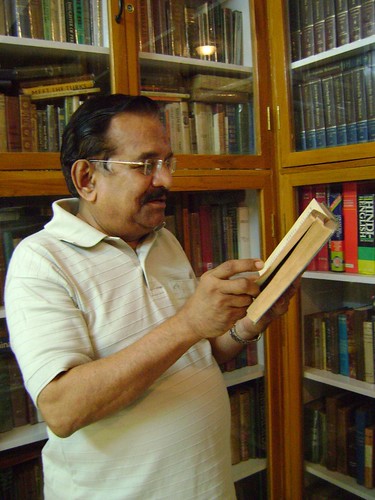By Kashif-ul-Huda, TwoCircles.net
Indian government spends about 5000 crore annually for minorities welfare. A number of schemes and programmes specifically designed for the minorities are on the books for a number of years. But still Muslims have not seen much of the benefits of these programmes.
Moosa Raza, a former bureaucrat blames poor implementation for the failure in benefits reaching the targeted population. He says that monitoring of the government programmes is lacking.
A native of Chennai, Moosa Raza has served over 35 years as an IAS officer. Therefore, he explains me to what is involved in implementation of a programme. Implementation is done through government departments, agencies and district administration.
So however good the designing of the programme, it is at the implementation level that schemes fail. “Partly due to lethargy, partly due to negligence, and party due to lack of commitment to the concept of ameliorating the weaker sections that the implementation is not done at the same spirit that the scheme was originally designed,” says Raza.
Raza offers a solution; he wants a parliamentary committee for minorities on the same pattern as the Parliamentary Committee on the Welfare of Scheduled Castes and Scheduled Tribes. This Committee monitors government plans for SCs and STs, whether it is getting implemented properly, reservation quotas are being met, and if benefits is reaching the population. Moosa proposes that a parliamentary committee for minorities be formed that should monitor all schemes that the government has formulated for minorities. Once given the same mandate as the one for Parliamentary Committee on the Welfare of Scheduled Castes and Scheduled Tribes, this committee can also travel in the country to monitor the progress of the schemes; it can obtain data from the departments. Based on the data analysis they can meet the district level officials and ask questions about the implementation.

Raza argues that once they know that they are being monitored and also questioned, the implementation agencies will become alert. They will become more responsive since they are now accountable to the representative of the people. Annual report by the committee will make the process transparent.
Karnataka, Andhra Pradesh, and Kerala already have setup assembly committees for minorities’ welfare, so there is already a precedent. This can be done at the national level too. Moosa Raza encourages talking to the newly elected MPs to demand this committee. He cautions that if this is not done in the first year of the new Lok Sabha then it may be too late to do it later.
More about Moosa Raza:
Moosa Raza is a former IAS officer of 1960 batch. Originally of Gujarat cadre, Raza retired in 1995 but leading a very active life. He has been director general of India Islamic Cultural Centre in New Delhi and instrumental in getting the building construction finished, which had been stalling for a number of years.
While in IAS he served a number of years in Gujarat rising to be the principal secretary to the chief minister of Gujarat. He also served as chief secretary of Jammu & Kashmir and advisor to the UP governor retiring as cabinet secretary to the government of India.
Since retirement he has been part of many high level committees. These days aside from his social work he is also the Chairman of Coastal Energy Company, a $500 power company based in Tamil Nadu.
He lives in Chennai and his personal library has an impressive collection of books in Arabic, English, Gujarati, Hindi, Persian, and Urdu- all the languages that he is fluent in.
Links:
http://india.gov.in/knowindia/parliamentary.php
http://www.coastalenergen.com/

